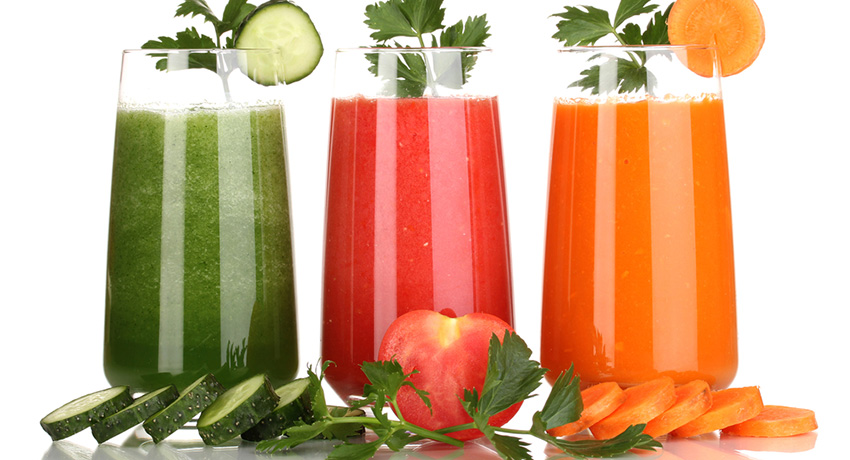Is Juicing Really Healthy?

Juices photo via Shutterstock
Juicing is everywhere. Boston magazine has covered it many times. One brave editor tried a cleanse. Another discovered what goes into some of the most popular juice creations. We recently published a Q&A with a new juicery owner. So imagine our surprise when we found out that Brandon Kolar, a personal trainer and nutritionist at Equinox Boston, thinks juicing is more about hype and less about nutrition.
Kolar says that our society in general has some very negative connotations around food, and that a juice cleanse is a very easy way to drop pounds quickly. But you will gain it all back the second you eat normally again. “Depending on how long you [juice], you’re certainly at risk for losing muscle mass,” Kolar says. “When you lose muscle mass you’re actually dropping your metabolic rate, which makes your body work less efficiently. You’re creating a downward spiral by doing a juice cleanse.”
But juicing is a way for people that don’t eat a lot of vegetables and fruits to get a lot of nutrients. So how can that be a bad thing? Kolar says that there are some positive aspects to juicing. “There are a lot of positives. Obviously, this is a very simple way to get your fruits and vegetables. You’re getting tons of vitamins and minerals, and lots of phytonutrients. And you can mix concoctions that are actually yummy,” Kolar says. “Your kale can even taste good.” He also says that there is a reason why juicing is so popular. Juicing is being touted with so many benefits that it’s akin to the fountain of youth. The promised benefits include things like clearer thought; weight loss; increased energy; improved mood and cheerfulness; the feeling of satiation; and glowing skin, hair, and nails.
But that’s the tricky part. Kolar says that if don’t consume enough fruits and vegetables on a regular basis, and then start juicing, will likely see some dramatic changes. “If your body has been starving for X,Y, and Z nutrients for a long time, and you’re suddenly adding them via juice or supplements, you’re going to see a change,” Kolar says.
But that is where the good-for-you part of juicing ends, according to Kolar. First and foremost, he says, by juicing you are not getting the fiber you need. Fiber helps move waste through the body and it helps to slow down the absorption of sugar. When you are juicing, you are not getting the good fiber and nutrients that are in the pulp of fruits and vegetables. All of that goes to waste, he says. Fiber is a major reason that fruits and vegetables are good for the body. They’re full of soluble and insoluble fibers that account for many actions in the digestive tract.
“The whole idea with juicing is typically people are going to have a juice and they’re going to go. They’re not going to sit down and have some eggs with it, they’re not going to sit down and have some almond butter, they’re certainly not going to sit down and have a steak,” Kolar says. “There’s just not any protein or fats associated with it either, and we need our good fats. And when they’re taking in carbohydrates just as a meal entirely in and of itself, you’re missing out on a lot of other macronutrients.”
Kolar recommends eating whole fruits and vegetables instead of just the juice. Or, he suggests adding some nut butter or protein powder into your juice. “Don’t expect to get all [your] fruits and vegetables in fruit juicing solely. Also, maybe go to a juice bar that actually supplements in protein into their juices. Maybe through protein powder, a good organic whey protein powder. Almond milk, soy milk, either of those would be fine,” Kolar says.
What do you think? Is juicing a passing trend or here to stay? Have you tried a cleanse? What were your results?


